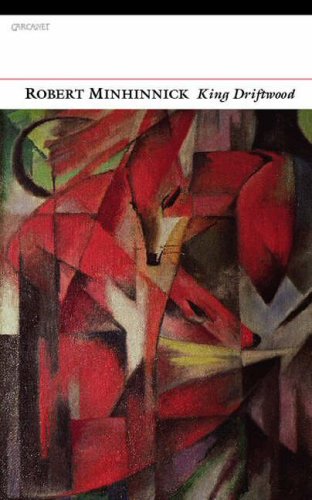Americans don’t know Minhinnick yet; British, and especially Welsh, readers know the Welsh writer as an environmental campaigner, an inveterate traveler, and a maker of harsh, strange, thoughtful verse, alert at once to the sciences and to folklore, and built up from many small fragments, like sets of postcards, or like mortarless stone walls. Some of his poems indict time, history, or nature itself for dashing all our hopes; some indict humankind, or subsets thereof (nation-states, e.g.) for waging war or poisoning the globe. His best verse delivers both indictments at once: a poet of bitterness, of the slow burn, of observation that modulates easily into defiance or despair, he feels at “home / where the earth ends,” assembling “tiny dark splinters” he sees almost everywhere.
Minhinnick writes about Iraq, about South America, about the insides of atoms, but his habitat, so to speak, is coastal Wales. His first and last symbol—for entropy, for erosion, for how the earth defies us and yet succumbs to us—is sand: “the wind is landlord of this world, / posting dunes at the door like golden gangsters.” In a prose passage, “Sand isn’t sent. Sand sends itself, a fanfare in the funfair, its veil on the wave, its vowel in the wind.” Sand grinds us down, makes us old, makes everything alike—and yet the towns and the characters, the vegetation and the lineation, within Minhinnick’s book are not alike: this is a long book that justifies its length, a book to re-read, with different highlights each time. The heterogeneous units in his verse, the line lengths and the syntactic forms within forms, are like the heterogeneous parts of society, all of us coconspirators and sufferers in an omnipresent tragedy of the commons. A nine-page poem set at a “fever hospital” ends as the ghosts of its patients look back at us:“fifty shocked / beings in their smocks / struck down at the windows like fifty stems of grass / lying down together as the wind blows through.”
A real campaigner, sounding sincere alarms, Minhinnick also depicts resignation, a traveler’s exhaustion part practical (miles to go) and part meta-physical: “I was the hare / but my own life crept past me / under its grey shell,” he declares. “What’s for me now but / The Rough Guide to Sleep / and an attic with no lock in a seaside hotel?” He thinks at once of the human time-scale of refugees, lovers, and families, and of geological time, continental drift, oceanic change. He can even shift between them mid-sentence, making a human lover into a tide-shaped beach: “Imagine, my darling, at the water’s edge / how beautiful you will become / when the waves are tucked under your chin / and the sea makes ready with her scissors and comb.”
The poems have the prose virtues, something to see and to say; the worst add journalistic vices—haste, cliché (“Watching her, I lose / balance, might drown in her depths”). The best add virtues that only poems of some length, made up of many small pieces, can give: disjunctions, transitions, slices of various genres—broadside ballad, made-up nursery rhyme, slogan, spell. One poem speaks for a radioisotope; others assume the voice of a crazed recluse, a homeless grandmother, a middle-aged schoolteacher. All sound energetic, frustrated, sharp, and serious. On the one hand,“there must be / green gods / too”; on the other hand, says the same poem (“The Fairground Scholar”), perhaps any poet is only “the drowning man arguing semantics with the sea.”





